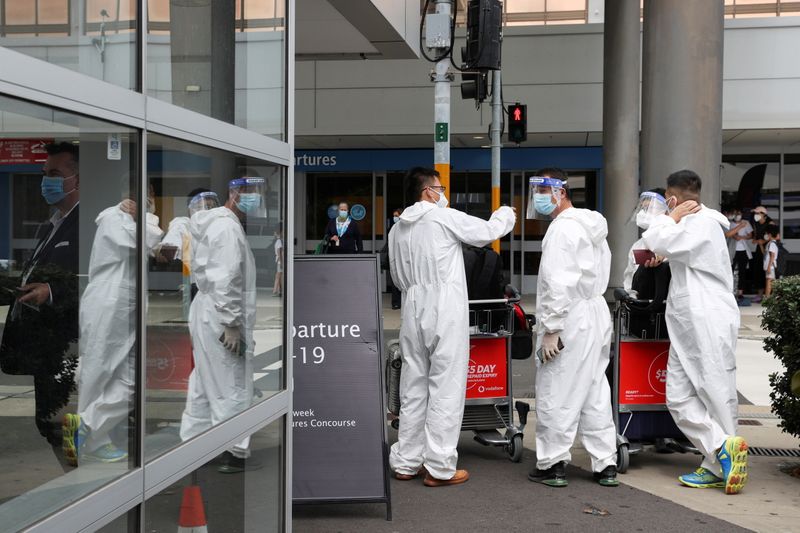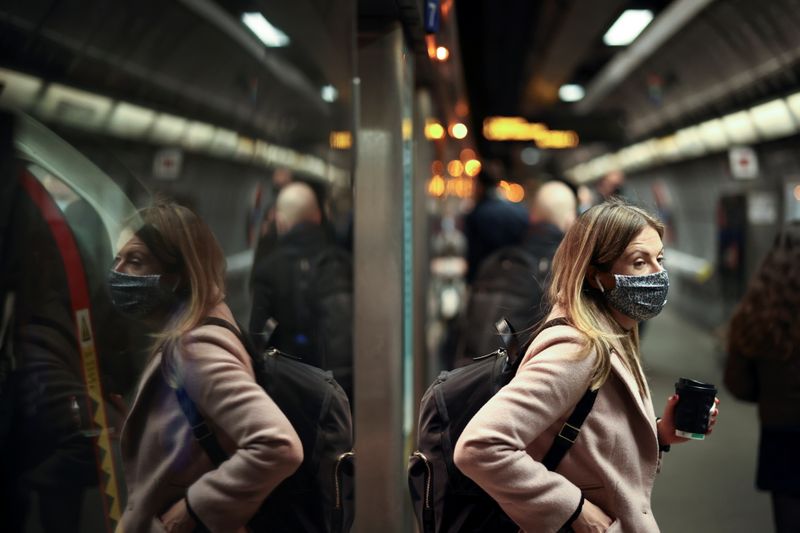(Reuters) – Here’s what you need to know about the coronavirus right now:
WHO chief scientist urges people to not panic over Omicron
The World Health Organization’s chief scientist urged people not to panic over the emergence of the Omicron coronavirus variant and said it was too early to say if COVID-19 vaccines would have to be modified to fight it.
Speaking at the Reuters Next conference, Soumya Swaminathan also said it was impossible to predict if Omicron would become the dominant strain.
New York has confirmed five cases of Omicron, its governor said on Thursday, bringing to five the number of U.S. states having detected the variant, with 10 reported infections nationwide.
South Africa is being hit by a fourth wave of infections driven by the Omicron variant which has been detected in seven of the country’s nine provinces, Health Minister Joe Phaahla said.
Malaysia has detected its first case of Omicron in a foreign student who was quarantined after arrival from South Africa two weeks ago, its health minister said on Friday.
Australia reported its first community transmission of the new variant, but authorities held steady on a plan to reopen the economy amid hopes it would prove to be milder than previous strains.
India expects the Omicron variant to cause less severe disease, the health ministry said on Friday, thanks to vaccinations and high prior exposure to the Delta variant that infected nearly 70% of the population by July.
Roche’s newly acquired subsidiary TIB Molbiol has developed three new test kits to help researchers detect mutations in the Omicron variant, Roche said on Friday.
Study finds mRNA vaccines provide biggest booster impact
COVID-19 vaccines made by Pfizer and Moderna that use mRNA technology provide the biggest boost to antibody levels when given 10-12 weeks after the second dose, a new British study has found.
The “COV-Boost” study was cited by British officials when they announced that Pfizer and Moderna were preferred for use in the country’s booster campaign, but the data has only been made publicly available now.
England’s COVID-19 prevalence rises
The prevalence of COVID-19 infections in England rose to around 1 in 60 people in the week ending Nov. 27, Britain’s Office for National Statistics said on Friday, led higher by the dominant Delta variant rather than Omicron.
The prevalence was up from 1 in 65 reported the previous week, the ONS said, adding that 99% of all infections which were sequenced were genetically compatible with the Delta variant.
South Korea widens vaccine pass requirement
South Korea announced on Friday that people visiting restaurants and cinemas and other public spaces will have to show vaccine passes, amid a surge in COVID-19 infections.
The government also re-imposed limits on private gatherings, which had been recently relaxed, as the country posted record numbers of new cases this week.
China easing rules for U.S. business travellers
China will cut to no more than 10 days the time required for approval of travel by U.S. business executives, its ambassador to the United States said on Thursday, promising to turn “an attentive ear” to concerns raised by businesses.
Qin Gang, who arrived in the United States in July, told a dinner hosted by the US-China Business Council that Beijing would also work to make COVID-19 testing more convenient and allow executives to work during quarantine.
(Compiled by Linda Noakes; Editing by Angus MacSwan)

























